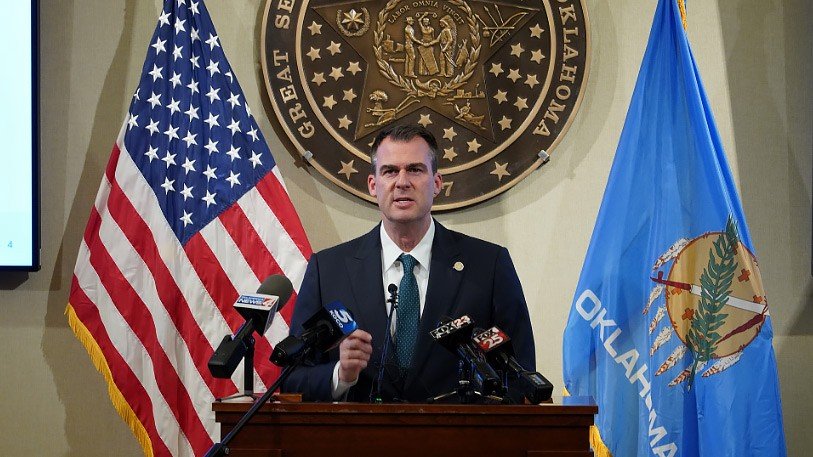Oklahoma Governor Kevin Stitt has called upon the state’s Horse Racing Commission to oppose the automatic renewal of casino gaming compacts set to expire in 2034. Stitt’s move comes in the wake of 2019 licensure action that led to the contentious renewal of the state’s Model Tribal Gaming Compact, sparking legal debates and industry scrutiny.
Stitt’s proposed resolution, presented to the Horse Racing Commission, seeks to prevent a similar scenario a decade from now. The draft resolution asserts the commission’s intent to ensure that compacts entered under the Model Gaming Compact do not undergo automatic renewal.
“Be it resolved that the commission does hereby express its intent to take all steps necessary to ensure compacts entered pursuant to the Model Gaming Compact, which are set to expire Dec. 31, 2034, not be automatically renewed,” it reads.
However, during a recent meeting, the Horse Racing Commission took no immediate action on the resolution, raising questions among industry observers. Commission Chairman Keith Sanders defended the 2019 action, stating that the commission had followed the law precisely and had renewed the compacts accordingly. He emphasized that the governor’s request seeks to alter established procedures.
Stitt’s office clarified that the resolution is non-binding and wouldn’t impact gaming until 2034. According to Abegail Cave, Stitt’s communications director, the effort aims to provide future governors with flexibility in negotiating compact terms.
The proposed resolution has sparked legal uncertainties among commissioners. While some expressed concerns about its implications, others questioned the commission’s authority to enact such changes without legislative backing.
Sanders revealed that the commission sought legal advice from the Attorney General’s Office before taking further action on the resolution. The resolution’s fate could thus hinge on the attorney general’s interpretation of its legal standing.
Former commissioner Joe Lucas cautioned about the potential repercussions on the horse racing industry if the compacts do not renew. He highlighted the significant economic impact of race tracks and the breeding industry in Oklahoma, underscoring the need for careful consideration of the resolution’s consequences.
Lucas said the livelihood of a track like Fair Meadows Race Track in Tulsa, which is smaller in size and has fewer racing days, is tied to shared revenues from a “participating tribe” statutory component in the State-Tribal Gaming Act that provides revenue from neighboring establishments.
In exchange for the track not establishing Class III gaming machines, that fund guarantees at least $2 million each year for Fair Meadows race purses, with millions of other dollars divided between thoroughbred and quarter-horse racing at Will Rogers Downs and Remington Park.
In response to the developments, Cherokee Nation Principal Chief Chuck Hoskin Jr. expressed support for the Horse Racing Commission’s commitment to “uphold the law” and maintain tribal-state partnerships. Similarly, Matthew Morgan, chairman of the Oklahoma Indian Gaming Association, voiced concerns about the governor’s actions, emphasizing the importance of abiding by legal obligations and fostering collaboration.
